Assumption: the following is done on Cygwin with OpenSSL 0.9.8e
For the "unsupported certificate purpose", the immediate signer may have no S/MIME purpose.
From OpenSSL documentation:
-purpose purpose
the intended use for the certificate. Without this option no chain verification will be done.
$ openssl x509 -purpose -in goodcert.pem -noout
Certificate purposes:
SSL client : No
SSL client CA : No
SSL server : No
SSL server CA : No
Netscape SSL server : No
Netscape SSL server CA : No
S/MIME signing : No
S/MIME signing CA : No
S/MIME encryption : No
S/MIME encryption CA : No
CRL signing : No
CRL signing CA : No
Any Purpose : Yes
Any Purpose CA : Yes
With reference to this, I added the switch "-purpose any". Then I no longer see "unsupported certificate purpose" but still encounter same digest & signature failures as you.
1900:error:21071065:PKCS7 routines:PKCS7_signatureVerify:digest failure:pk7_doit.c:948:
1900:error:21075069:PKCS7 routines:PKCS7_verify:signature failure:pk7_smime.c:312:
With hints from this and lots of research(#1,#2), it turns out the input "modified_exe" to -content was wrong. It should have been the content field in the Sequence ContentInfo of the PKCS #7 SignedData, excluding its DER tag and length bytes.
Refer to Authenticode_PE.docx for the declaration of SignedData.
(simply too much details I don't see fit including!)
Check below for clarity:
openssl asn1parse -inform der -in signature.der > signature.txt
head signature.txt -n30
0:d=0 hl=4 l=5464 cons: SEQUENCE
4:d=1 hl=2 l= 9 prim: OBJECT :pkcs7-signedData
15:d=1 hl=4 l=5449 cons: cont [ 0 ]
19:d=2 hl=4 l=5445 cons: SEQUENCE //SignedData
23:d=3 hl=2 l= 1 prim: INTEGER :01 //Version
26:d=3 hl=2 l= 11 cons: SET //DigestAlgorithmIdentifiers
28:d=4 hl=2 l= 9 cons: SEQUENCE
30:d=5 hl=2 l= 5 prim: OBJECT :sha1
37:d=5 hl=2 l= 0 prim: NULL
39:d=3 hl=2 l= 104 cons: SEQUENCE //ContentInfo
41:d=4 hl=2 l= 10 prim: OBJECT :1.3.6.1.4.1.311.2.1.4 //ContentType
53:d=4 hl=2 l= 90 cons: cont [ 0 ]
55:d=5 hl=2 l= 88 cons: SEQUENCE //SpcIndirectDataContent (exclude this tag and length bytes)
57:d=6 hl=2 l= 51 cons: SEQUENCE //SpcAttributeTypeAndOptionalValue
59:d=7 hl=2 l= 10 prim: OBJECT :1.3.6.1.4.1.311.2.1.15 //ObjectID
71:d=7 hl=2 l= 37 cons: SEQUENCE
73:d=8 hl=2 l= 1 prim: BIT STRING
76:d=8 hl=2 l= 32 cons: cont [ 0 ]
78:d=9 hl=2 l= 30 cons: cont [ 2 ]
80:d=10 hl=2 l= 28 prim: cont [ 0 ]
110:d=6 hl=2 l= 33 cons: SEQUENCE //DigestInfo
112:d=7 hl=2 l= 9 cons: SEQUENCE //AlgorithmIdentifier
114:d=8 hl=2 l= 5 prim: OBJECT :sha1 //ObjectID
121:d=8 hl=2 l= 0 prim: NULL
123:d=7 hl=2 l= 20 prim: OCTET STRING [HEX DUMP]:<hash of modified_exe> //digest OCTETSTRING
145:d=3 hl=4 l=4774 cons: cont [ 0 ]
149:d=4 hl=4 l=1332 cons: SEQUENCE
153:d=5 hl=4 l= 796 cons: SEQUENCE
157:d=6 hl=2 l= 3 cons: cont [ 0 ]
159:d=7 hl=2 l= 1 prim: INTEGER :02
The byte stream from offset 57 to 144 is the correct input to -content!
Exact offset depends on your file.
As a rough guidance, 2 lines before "1.3.6.1.4.1.311.2.1.15" is the "SpcIndirectDataContent", on this line notice that 55+2+88-1=144. the next line start from 57.
final cmd:
openssl smime -verify -inform DER -in signature.der -binary -content
signedData -CAfile myCA.crt -purpose any -out tmp
